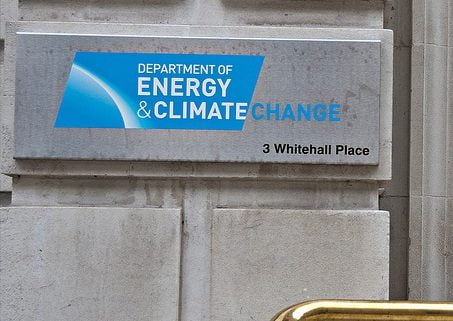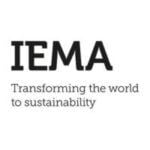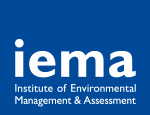

Economy
Gap in Government Energy Policy Making – Clear Commitment to Carbon Reductions Required
The Institute of Environmental Management & Assessment (IEMA) supports the development of a more joined-up approach to policy that includes both carbon reporting and pricing. These and other policy drivers can together provide the incentives required to drive business action to reduce CO2 emissions and achieve cost savings.
75% of IEMA members say that energy and carbon reduction policies can be cost neutral for organisations and lead to financial savings.
Nick Blyth, Policy & Engagement Lead at IEMA said: “Currently there is a gap in the Government’s review of the business energy efficiency tax landscape – clear objectives are needed on how much carbon reduction any new policies will aim to achieve. 90% of IEMA professionals believe that the Government’s current review should maintain and or exceed the same ambitious levels of carbon reductions sought by earlier policies.
“These carbon reductions are vital to delivering our longer term Carbon commitments and also to enable UK business to compete on the global stage through innovation and in achieving efficiencies and cost savings.”
IEMA supports the goal of effective simplified and non over-lapping energy and carbon regulation that could provide greater clarity and consistency. This should be developed, impact assessed and introduced over a timeline that will minimise the impact on businesses, who have only recently established internal systems to deliver against the current policy landscape.
“Business and organisations need a durable policy landscape that provides long term confidence and certainty to inform investment in energy saving, and carbon initiatives that can deliver benefit to the bottom line and to the environment. 94% of IEMA professionals support the need for tax or price signals to be set over at least a 3 year period, and should follow the good example of the landfill tax with its clear timeline,” said IEMA’s Nick Blyth.
Policy mechanisms such as mandatory GHG reporting should stay as they have a key role to play in enabling businesses to measure, manage and therefore reduce their energy consumption and carbon (GHG) emissions.
Mandatory reporting, alongside an effective pricing driver, as has been provided within the CRC, is key to enabling business to invest in energy efficiency measures. The CRC has been effective – supporting business cases for energy efficiency and renewable energy investments.
A reformed policy approach could be broadened out to encompass businesses that are currently implementing the new Energy Savings Opportunity Scheme (European Directive transposition). This would be a joined-up approach in policy review and would extend the reach of energy and carbon engagement to around 9,000 businesses.
“A joined-up approach to the energy policy landscape is essential in the long-term. The Government’s review provides an opportunity to maximise carbon savings for companies, enabling UK plc to compete on the global stage. By retaining key elements of the existing policy landscape, and reducing overlap, the UK could have an effective policy landscape that supports business leaders to deliver a low carbon future,” said Blyth.






























